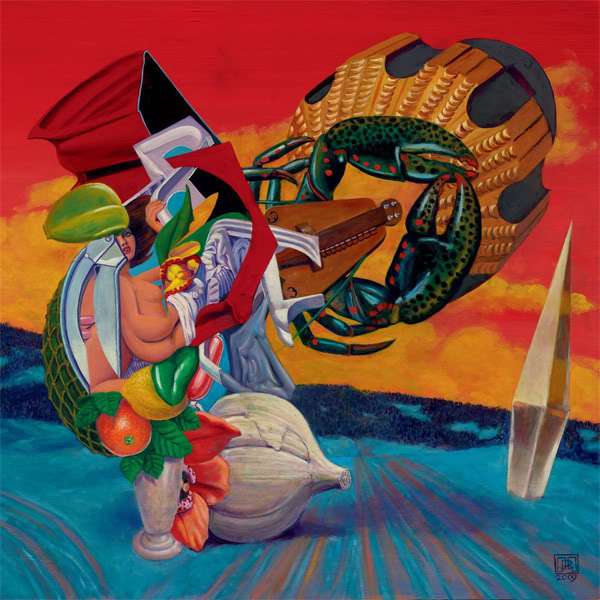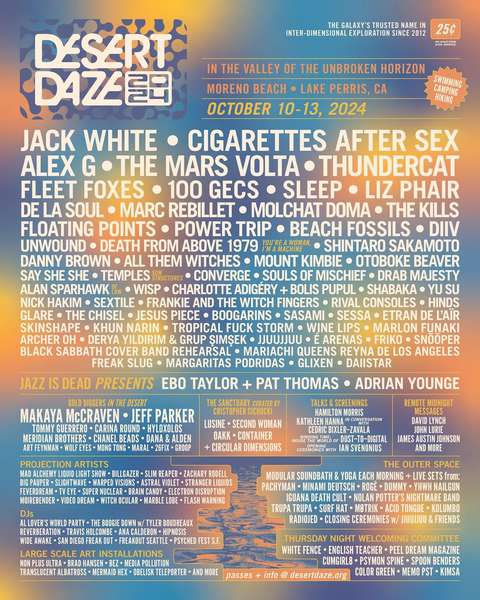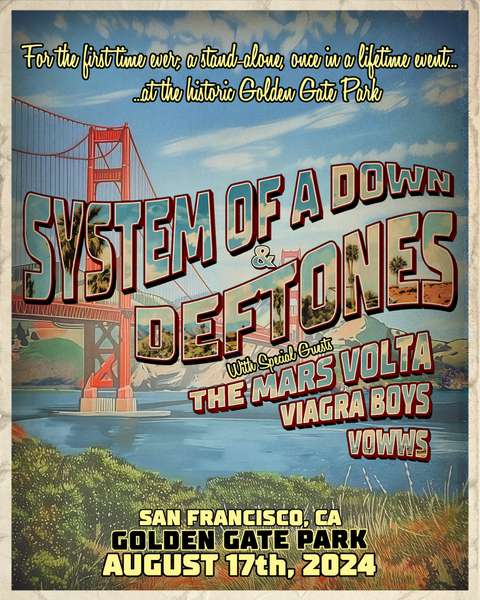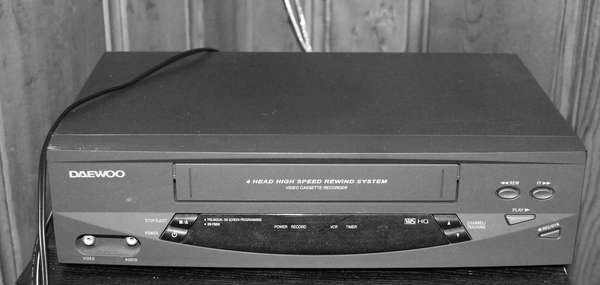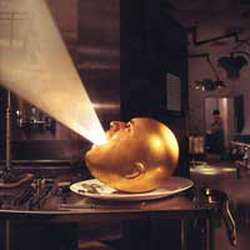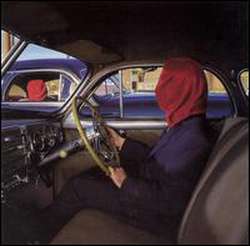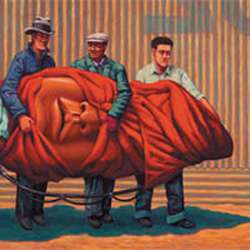Throughout their eight-year tenure as a band, The Mars Volta has never been timid about doing whatever they please. The collaborative duo that is The Mars Volta - guitarist Omar Rodríguez-López and vocalist Cedric Bixler-Zavala - have tried it all, and yet they continually make it a point to find new ways to express themselves. Full-length album number five, Octahedron, is yet another musical exploration for Rodríguez-López and Bixler-Zavala as it is their interpretation of an acoustic album.
Octahedron leads off with the single "Since We've Been Wrong." The seven-minute plus track is a little bit of what we expect from The Mars Volta, but also something fairly different from Rodríguez-López and Bixler-Zavala. Anchored on the strumming of Rodríguez-López's acoustic guitar work, the song works its way through a standard verse-chorus-verse structure. Shocked? Don't worry; there are also plugged-in jam sessions and the ending of the song adds string instruments and jazz-inspired percussion. Bixler-Zavala's dynamic vocals match the sway of the music perfectly - equal parts soaring harmonies and soulful croons, not to mention his falsetto. The song is very reserved, and for The Mars Volta that's surprising. Most of the time we hear two or three songs worth of ideas in one song, but I enjoy this "change."
The Mars brings forth the more structured style throughout the album. Granted, these are not three-minute pop songs penned for mainstream radio play. However, there are significantly less cryptic lyrics and - infectious hooks - in the musings of Bixler-Zavala, which is atypical of the encoded lyrical writings we've become accustom to over the years. Also, there is that underlying sense of predictability in the songs, which in actuality is something I never would have predicted from The Mars Volta. On the second track, "Teflon," the group becomes a full rock ensemble once again. The guitars are mostly plugged-in - nuances of acoustics are added - and I actually hear a full rhythm section as well. Mixed throughout are various keyboard and snyth effects. Even with the various additions the song again feels held back from the controlled chaos we've heard on the group's previous ventures. By no means would I call this accessible, but it is certainly a slight shift in direction for the group.
"Halo of Nembutals" is the closest the band comes to sounding like De-Loused in the Comatorium while "With Twilight as My Guide" allows Rodríguez-López to showcase his talents. Simple acoustic and spacey wavering electricities are interspersed, and often duel each other throughout the song. "Copernicus" is another soft, cool, smooth track; the vocals of Bixler-Zavala are the focus with the guitars, programmed drums, and pianos falling into the background.
In spite of the slower moments that seem more predominant on Octahedron verses previous efforts, this is a rocking album. "Cotopaxi" boasts an excellent Zeppelin-esque riff session in addition to its use of mixed time signatures. Closer "Luciforms" is a superb ending to the album, with the rock-fused jam moments some of the best work the group has put to tape.
With eight years of writing, recording, and performing under their belts, The Mars Volta mission is constantly evolving and changing. And that's something that makes each new album from the group worth listening to, as every album is a new experience. By now you're either a fan of what The Mars Volta offers, or you're not. They're not going to win any new fans, and I doubt they'll lose any either. That is, of course, unless the next album is a fusion of jazz, hip-hop, polka, and mariachi music? I wouldn't put it past them.
